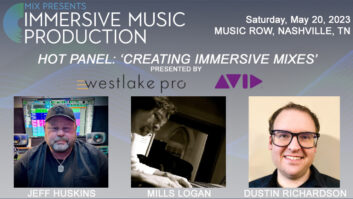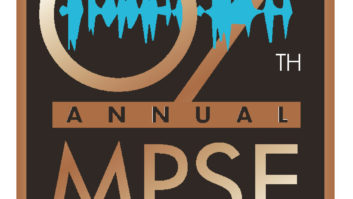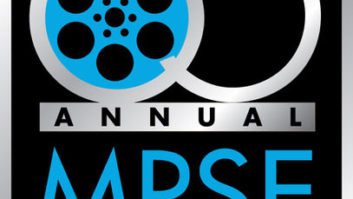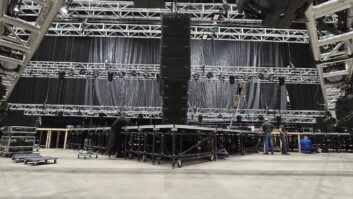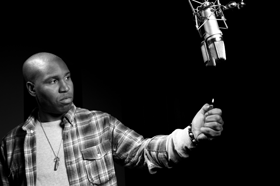
Claude Kelly
Photo by Rayon Richards
There isn’t a swing or slide in sight—but don’t tell that to Claude Kelly. Seated inside the control room of KMA Studios in New York City, one of the millennium’s most successful songwriters expects a full day of serious fun to unfold in front of him.
“I consider the studio my playground,” Kelly says. “It’s one of the few places where I feel totally uninhibited and free. The beauty of it is I have great people around who get me, and all the toys and tools are there to help enhance my imagination and the stories I’m telling.”
While a lot of people have to work hard to attain the stratospheric hit levels Kelly has reached, apparently all he has to do is…keep playing. A short list of chart-toppers that he’s written or co-written include Bruno Mars’ “Grenade,” Ledisi’s “Pieces of Me,” Fantasia’s “Bittersweet,” Kelly Clarkson’s “My Life Would Suck Without You,” Britney Spears’ “Circus,” Chrisete Michele’s “Blame It on Me,” and Miley Cyrus’ “Party in the USA.”
Just one of those bonanzas might satisfy some songwriters, but the New York City-born Kelly, whose songs have sold more than 25 million copies to date, seizes every day as a chance to pen an exciting new tune—preferably in a different genre from yesterday. “The business model that I created for myself is that I refuse to be pigeonholed,” he states. “I won’t be forced to do R&B, rock, country or pop every time. Taking out those boundaries gives me a lot of freedom. When I come into the studio, I have no idea what I’m going to do that day. It’s a fun adventure.”
On a recent visit to KMA, the intimate world-class studio that Kelly co-owns in Times Square’s legendary Brill Building, his genre-busting creative workflow was visible in full force. There, he was in different stages of development on two songs with the emerging artist Masha, whose powerfully expressive voice is central to a collaboration between Kelly and Nashville-based producer Nathan Chapman (Taylor Swift).
First, Kelly listened via the Griffin main monitors in KMA’s spacious control room as Masha overdubbed a dynamic lead vocal on the song “Ugly.” “I have an anything-goes mentality in terms of what I’m listening for on a vocal recording,” he explains. “I really don’t care too much about pitch. I believe in good pitch, but that’s never as important as emotion to me.

Masha (left) and Kelly
Photo by David Weiss
“For that matter, no plug-in or mic is so precious that I’ll take it over emotion,” he continues. “The problem with a lot of studios and musicians is that they boast a lot of fancy stuff. I say, ‘Yeah, but do I believe or feel anything coming out of the studio?’ All of this stuff was invented to aid in us getting chills, not prevent it. I always remind myself that AutoTune and Pro Tools are great, but are they aiding us in getting songs that will be the soundtrack to our day? If not, I don’t want anything to do with it.”
An avowed multitasker, Kelly hits his email for a few minutes to get caught up on multiple projects, then quickly refocuses on Masha as he hits the live room, where he’ll move a new song forward with the singer and her musical collaborator John Lardieri, playing acoustic guitar.
Seated behind the piano, the Berklee-trained Kelly quickly helps flesh out the as-yet-untitled song, which has most of its lyrics and a simple melody line written, but little else. As Masha sings, Kelly is able to track many things at once—tempo, pocket, bridge, counter-melody, and lyrical ideas—and seems to sculpt the song on-the-fly. Throughout, he maintains a sense of humor and perspective to ensure that the music, and not his ego, remains the most important thing in the room.
Meanwhile, Kelly’s longtime engineer, Ben Chang, mans the Avid ICON in the Studio A control room, recording every second—a measure Kelly insists is made, no matter how much hard drive space it takes up. “There’s a lot that’s recorded that’s probably wasted space,” he acknowledges, “but it’s worth it for the two or three seconds of experience when you want to find it. Sometimes two hours after you start writing, the tempo slows down—you want to be able to go back to the beginning and hear what your natural instincts were.
“For me, the hope is that we’ll catch synergy, so keep the mics going so I can hear everything. I may get up, hit the bongos and give us exactly what we needed. I learned that early on in Berklee: Everything had to be rehearsed perfectly and presented there, but it’s actually the things you can’t control that might be essential. I’ve studied some of the old Michael Jackson recordings, and he sold millions of records because he didn’t sacrifice the feeling. The people around me have learned that philosophy: Those are the things that make a song magic.”
Far from keeping his sauce secret, Claude Kelly is on a mission to show as many people as possible how a song unfolds in production. “We in the studio need to be more open about our process,” he states. “If people realized how hard we worked to make a two- minute-and-30-second song the best possible, they wouldn’t steal it. Beyonce and Lady Gaga take nine months to make an album for a reason: It takes all that time to record, mix and master it so it becomes something that people can dance to.”

